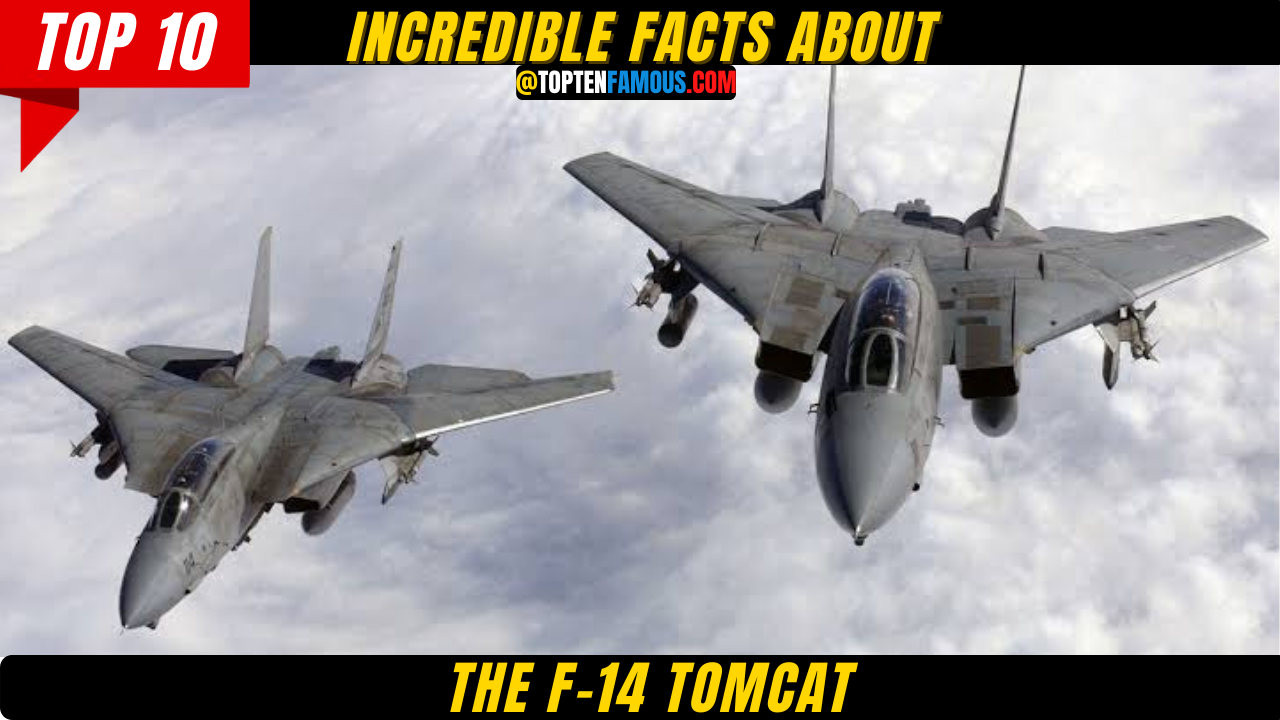Military
10 + Incredible Facts About The F-14 TOMCAT

The Grumman F-14 Tomcat is the meaning of supersonic speed created by the best of the outperforms. Pause… what does that try and mean? Bringing physical science and math into play, the American Navy planned a variable airplane with wings that had the capacity for lift boost during departure and drag minimization in the midst of a rapid flight making a picture of outright supersonic excellence.
Grumman had a grant program which urged champions to be remembered for the making of the F-14 Tomcat. This urged designing understudies to work in various segments of the creation area for a month. The entire course of action drew in virtuoso minds into concocting of the airplane. Dependent upon consistent extemporizations, this plane tracker was made for a conflict that never occurred since the beginning of time.
So here are 10 + Incredible Facts About The F-14 TOMCAT!

Incredible Facts About The F-14 TOMCAT
The F-14 made its most memorable flight almost a long time back, on December 21, 1970. The F-14 was the biggest and heaviest US warrior to fly from a plane carrying warship.

Incredible Facts About The F-14 TOMCAT
Contingent upon wing clear, the fuselage gives between 40-60% of the absolute lift for the F-14.

Incredible Facts About The F-14 TOMCAT
The F-14 was the main send off stage for the AIMG-54 Phoenix rocket, and it could convey up to 6 of the 1,000 pound rockets all at once.

Incredible Facts About The F-14 TOMCAT
The F-14 had one of the most impressive radars that anyone could hope to find at that point – it had the option to follow up to 24 focuses without a moment’s delay.

Incredible Facts About The F-14 TOMCAT
The F-14 had unimaginable adaptability – it filled in as the Navy’s sea air prevalence warrior, armada guard interceptor, and elevated surveillance stage. That is three totally different jobs for one stream.
Must Read :Top 10 Things To Keep in Mind While Flight Booking

Incredible Facts About The F-14 TOMCAT
The main nation as of now working the F-14 is…Iran. The F-14s were sent out to Iran in 1976, when the US had positive strategic relations with the country.

Incredible Facts About The F-14 TOMCAT
The F-14s wings can be ‘overswept’ to 75 degrees to save space on plane carrying warships.

Incredible Facts About The F-14 TOMCAT
During testing, a F-14 was set down on a plane carrying warship with an uneven wing clear.

Incredible Facts About The F-14 TOMCAT
The F-14 doesn’t have ailerons. All things being equal, it utilizes wing spoilers at low velocities, and differential ‘tailerons’ at fast.

Incredible Facts About The F-14 TOMCAT
The last F-14 battle mission was flown in 2006, yet the ‘Tomcat’ is as yet one of the most one of a kind, noteworthy, and quickest military airplane at any point constructed.
Must Read :10+ Facts About the CHENGDU J-20

































